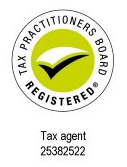Finland has been named the world’s happiest nation for the sixth year running. The small nation doesn’t stand out accidentally – it works on improvement across a range of metrics, and treats happiness as a teachable skill. Small businesses looking to boost performance and team wellbeing could take a lesson.
Australia’s first national wellbeing framework, Measuring What Matters, could help small businesses support employees amid increasing awareness of the relationship between happiness, wellness and performance, and a focus on holistic metrics alongside financial indicators as measures of business success.
International frameworks of wellbeing and happiness
In recognising the value of measuring progress through wellbeing indicators, many countries have developed frameworks to assess citizens’ quality of life.
New Zealand’s Wellbeing Budget prioritises mental health, children and supporting Indigenous people, and the United Kingdom introduced the Measuring National Wellbeing program in 2010, which is based on health, relationships, education, environment, and personal finance.
The United Arab Emirates has the National Program for Happiness and Wellbeing which aims to promote health and happiness as a lifestyle, develop metrics to track happiness, and ensure happiness is included in all government and workplace policies, programs and services.
Among the various frameworks, budgets and approaches, however, one country consistently tops the United Nations’ World Happiness Report – Finland was in first place in 2023 for the sixth consecutive year.
Finland’s winning formula includes low financial disparity between citizens, healthy life expectancy, social support and generosity, freedom to make life choices, and low perceptions of corruption. Finland also stands by the notion that happiness is a skill and can be taught.
The OECD framework for measuring wellbeing
The Organisation for Economic Cooperation and Development (OECD) has developed a multi-dimensional framework for measuring wellbeing, and it provides a useful starting point for small businesses to improve overall performance, employee engagement and customer satisfaction.
By incorporating the OECD’s indicators into strategic planning, small businesses can gain valuable insights into their employees, customers and communities.
These indicators might also assist small businesses to become more resilient when challenged by natural disaster, a pandemic, recession and cybersecurity threats.
Small businesses can apply the OECD framework to:
- Enhance employee wellbeing: By utilising wellness indicators, businesses can identify key areas, such as work-life balance, job satisfaction and career development, which impact employee wellbeing. This understanding allows small businesses to design policies that prioritise wellness, leading to higher job satisfaction, lower turnover rates and increased productivity.
- Improve customer satisfaction: Small businesses can collect data on customer needs, preferences and experiences to inform decision-making processes, leading to enhanced customer service, tailored offerings and improved customer satisfaction.
- Identify market opportunities: Small businesses can analyse wellness indicators to identify market gaps, trends, consumer demands and opportunities for innovation.
- Engage stakeholders and local communities: Incorporating wellness indicators into business practices can demonstrate a commitment to supporting the local community.
Measuring social impact, community involvement and sustainability can improve a business’s reputation, attract socially conscious customers, and help to create stronger relationships with local stakeholders, including government organisations, not-for-profits and potential business partners.
- Environmental impact and resilience: Small businesses can use wellness indicators to assess their resource efficiency and social responsibility.
This enables small businesses to identify areas for improvement, implement sustainable practices and measure progress towards organisational goals. This in turn can help businesses track their performance over time, which helps to create trust among stakeholders.
- Access funding and investment: Small businesses can integrate wellness indicators into their reporting frameworks and provide investors with a comprehensive view of their potential performance.
This can enhance business credibility, attract socially responsible investors and demonstrate commitment to long-term growth.
Businesses that align with the values of the OECD framework may have increased access to grants, loans and other financial resources specifically earmarked for promoting sustainable development and wellbeing initiatives.
Australia’s first national wellbeing framework
In Australia, we have the Treasury Wellbeing Framework, and the Federal Government is also currently developing a new Measuring What Matters framework to enable more accurate progress assessments on a range of social and environmental indicators in conjunction with traditional measures of economic strength.
Importantly, the framework can be used to develop economic, social, and environmental policy to meet the needs of small businesses.
The new Australian framework focuses on five major themes: prosperity, inclusiveness, sustainability, cohesiveness and health.
The first, prosperity, may be of most interest to small businesses. It aims to support a growing, productive and resilient economy, and includes an indicator related to opportunities for innovation and entrepreneurs.
The indicators for prosperity are:
- An economy that provides opportunities for all Australians
- An economy that is more resilient and less vulnerable to shocks
- People are financially secure
- People have access to education, knowledge and training so they have the skills to fully participate in society and the economy throughout their life
- People have access to necessary services and amenities
- A sustainable budget that can continue to deliver the services Australians rely on and can buffer the economy against future shocks
- A dynamic economy, which encourages and offers opportunities for innovation and entrepreneurship
- An economy that seizes the opportunities from the net zero transition and digitisation
Incorporating wellness frameworks like the OECD Framework for Measuring Wellbeing and Progress can bring numerous benefits to small businesses.
By adopting a holistic approach that goes beyond financial indicators, small businesses can pave the way for long-term success by using sustainable growth to manage the challenges of fast-paced business environments as well as external threats to their success.









